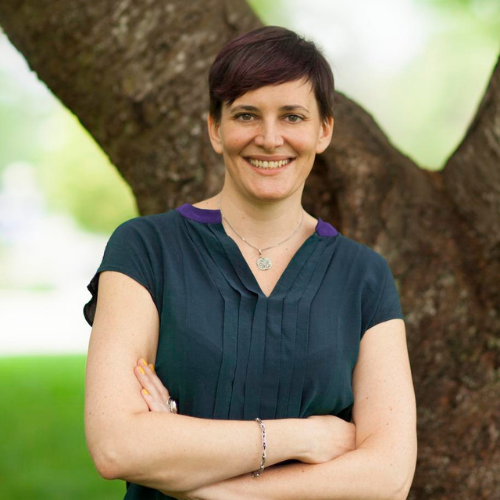We sat down for a holiday fireside chat with Bénédicte Schoepflin, Executive Director at the Canadian Network for the Prevention of Elder Abuse, to reflect on the past year, her wishes for older Canadians and what comes next.


If you could make one holiday wish for older Canadians this year, what would it be, and why?
Only one wish? That’s hard. I hope for a less chaotic and stressful year so older Canadians who have been isolated from their social circles and families by Covid can reconnect. I also wish for our leaders to support a proactive and comprehensive plan for elder abuse prevention and response, ranging from a national awareness campaign about ageism and abuse, to enhanced victim assistance services and support at the community level, for the benefit of older Canadians and their loved ones.
Looking back on this year, what are some accomplishments you’re most proud of?
2021 has been a watershed year for Canadians. A growing number of people have realized the pervasiveness of ageism, elder abuse, and neglect, and they are not willing to put up with it anymore. For CNPEA this meant that it was a big year, engaging with our decision-makers and reaching an increasing number of people.
CNPEA was invited to speak to two separate Standing Committees at the House of Commons, and addressed former federal Minister of Seniors Deb Schulte and her Provincial and Territorial counterparts during a special event on the Future of Aging in Canada. These were fantastic opportunities to talk frankly about the issues that older Canadians are facing and to press our government to take action.
We also had our biggest year in terms of people reached through our webinars, our website, and other communication channels. Visitors to our website triggered over 80,000 downloads of resources about elder abuse, and we saw a 21% increase in membership over one year. This is a clear sign that there is a growing awareness of elder abuse. People want to learn and are taking charge, making use of our knowledge-hub (cnpea.ca) to keep themselves and their loved ones safe.
What do the holidays mean to you?
The holidays are a rare time to recharge my batteries – as I said, it’s been a busy year! It’s a quiet time to reflect on the past year, draw some lessons from it and set some goals for the next. It’s also a time to reconnect with friends and of course, do a virtual cross-atlantic present opening session with my mom, who lives in Europe.
Looking to the New Year, what’s next in your work to support seniors?
There is a lot in the works at CNPEA. First, in the Spring, we will launch our Roadmap, an engagement strategy to encourage Canadians to contribute to elder abuse prevention, regardless of who they are, how old they are, or where they are in the country and in the system. It’s being designed to help each of us take action and to work together as partners to address the issue early before it becomes violence.
We are also in the early stage of a new project to enhance practical support for older women who experience gender-based violence. This is a large project funded by Women and Gender Equality Canada, with many incredible partners, and we can’t wait to share more about it as we go on.
We look forward to engaging with Minister Khera and her team to help make elder abuse a priority in Canada. And, of course, the new year also means a new plan for a large World Elder Abuse Awareness Day campaign and event, with our supporters and partners, including CanAge.
What’s your favourite holiday memory?
I was raised in an intergenerational household, with three generations under the same roof. My favourite memory is making a bunch of Christmas desserts with my grandma, that she had learnt to make while growing up in Morocco with her grandparents. Lots of orange blossom extract, almonds, dates, and honey involved. The unspoken rule was ”Make One, Eat One”, you know, for *quality testing*.
What’s the biggest misconception you wish would change about older people?
That they are a homogenous group – cartoonishly curmudgeonly, set in their ways, out of step, and all the same. Older people are you and me, with more grey hair and incredible life paths. They come in all shapes and sizes, with diverse backgrounds, wide-ranging interests and personalities, and rich inner and social lives. This diversity deserves to be respected and celebrated.

